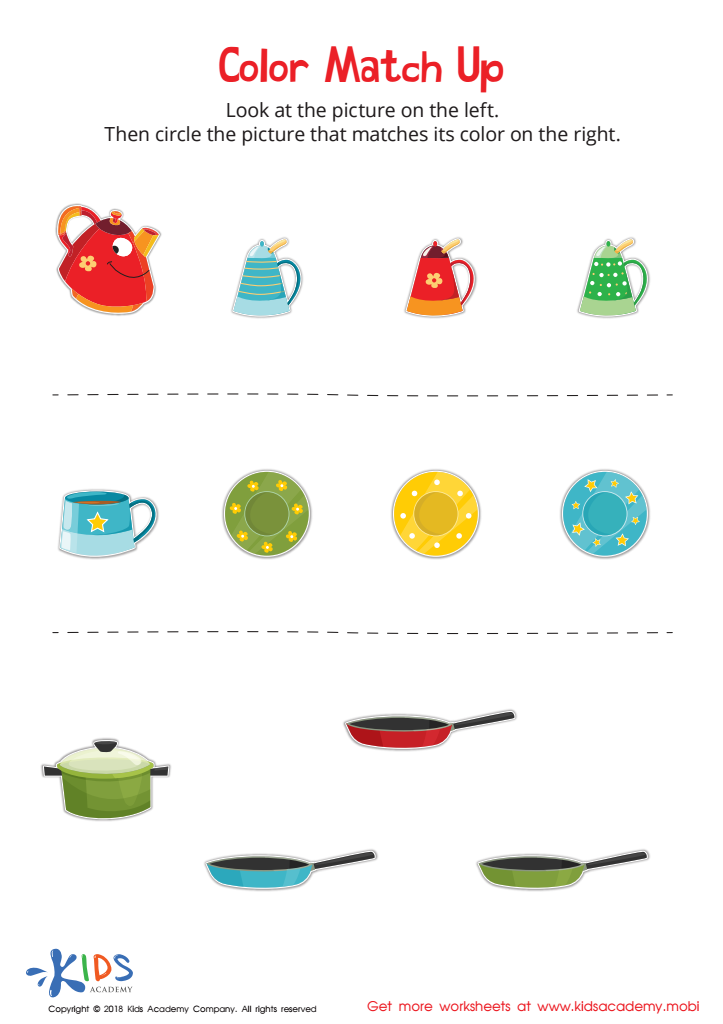Matching skills Normal Worksheets for Ages 3-4
12 filtered results
-
From - To
Enhance your child's cognitive development with our engaging Matching Skills Worksheets designed specifically for ages 3-4. These interactive resources help young learners improve their visual recognition and critical thinking abilities as they match related objects, shapes, and colors. Ideal for home or classroom use, our worksheets feature vibrant illustrations that captivate children’s attention while making learning fun. With a variety of exercises that encourage exploration and discovery, parents and educators can easily support early education. Start your child's journey to mastering matching skills today, and lay a strong foundation for their future learning experiences with our carefully crafted worksheets!
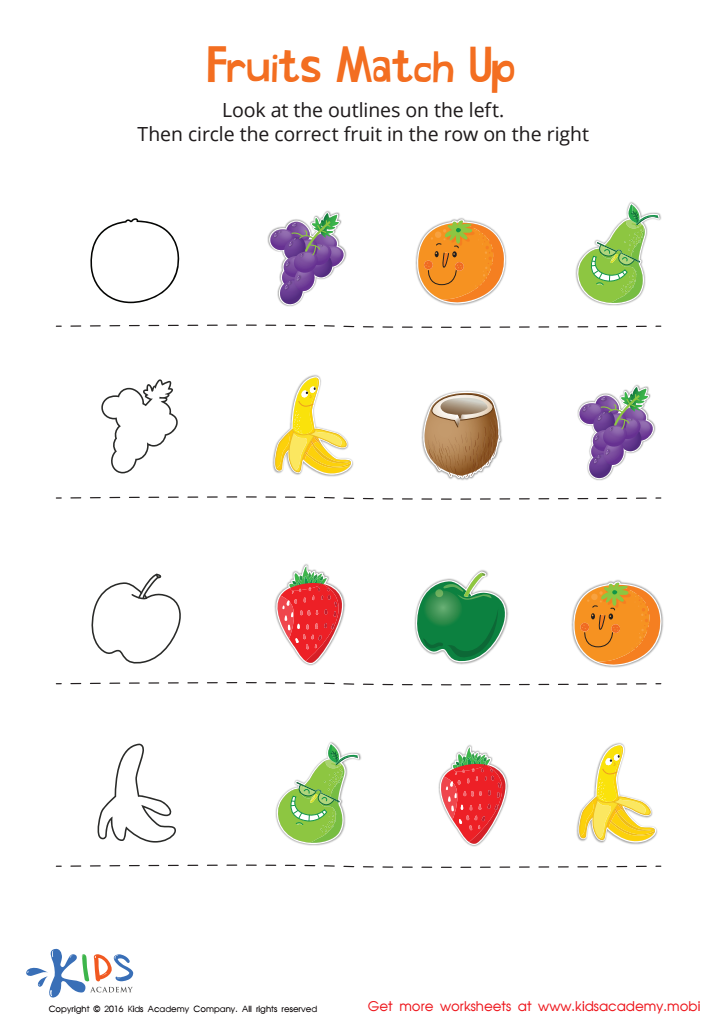

Fruits Match Up Worksheet
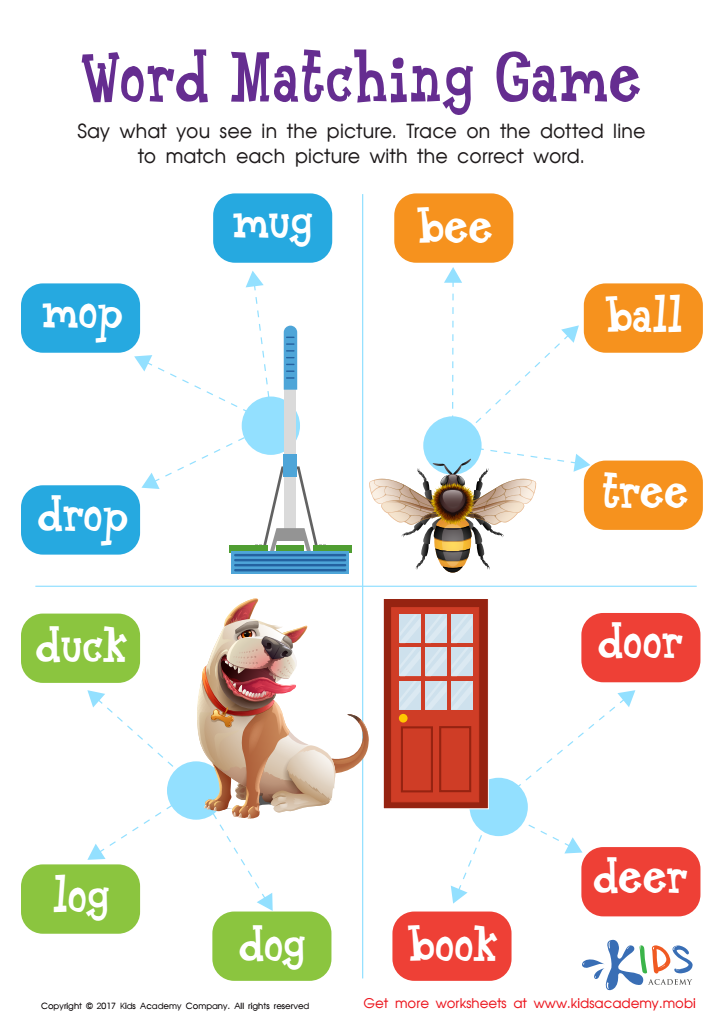

Word Matching Game Worksheet
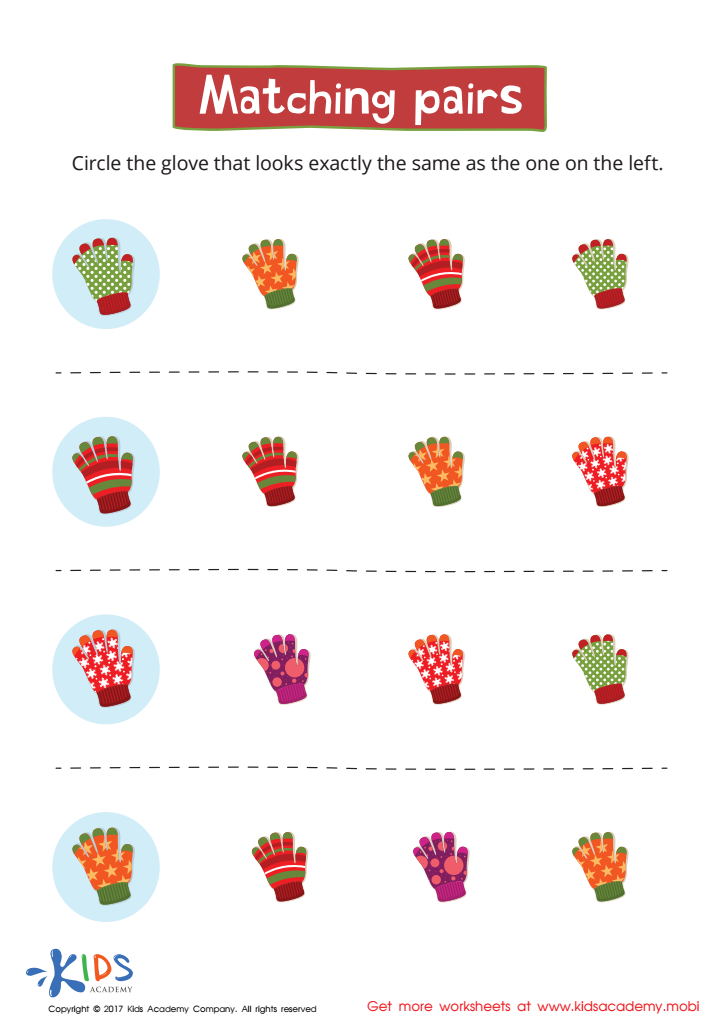

Matching: Matching Pairs Worksheet
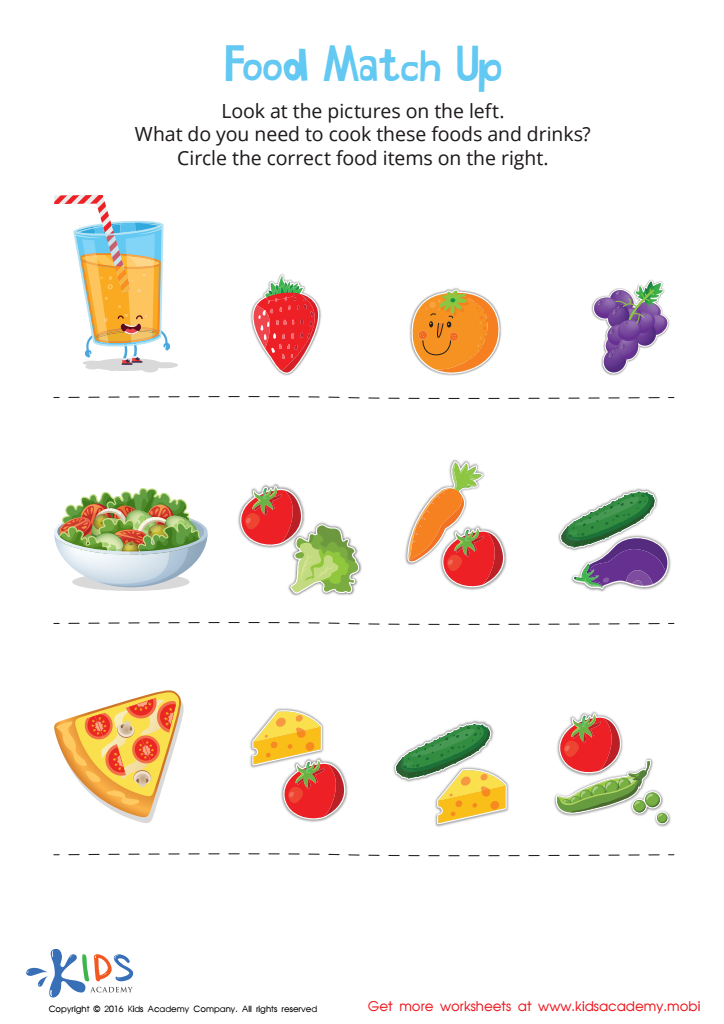

Food Match Up Worksheet
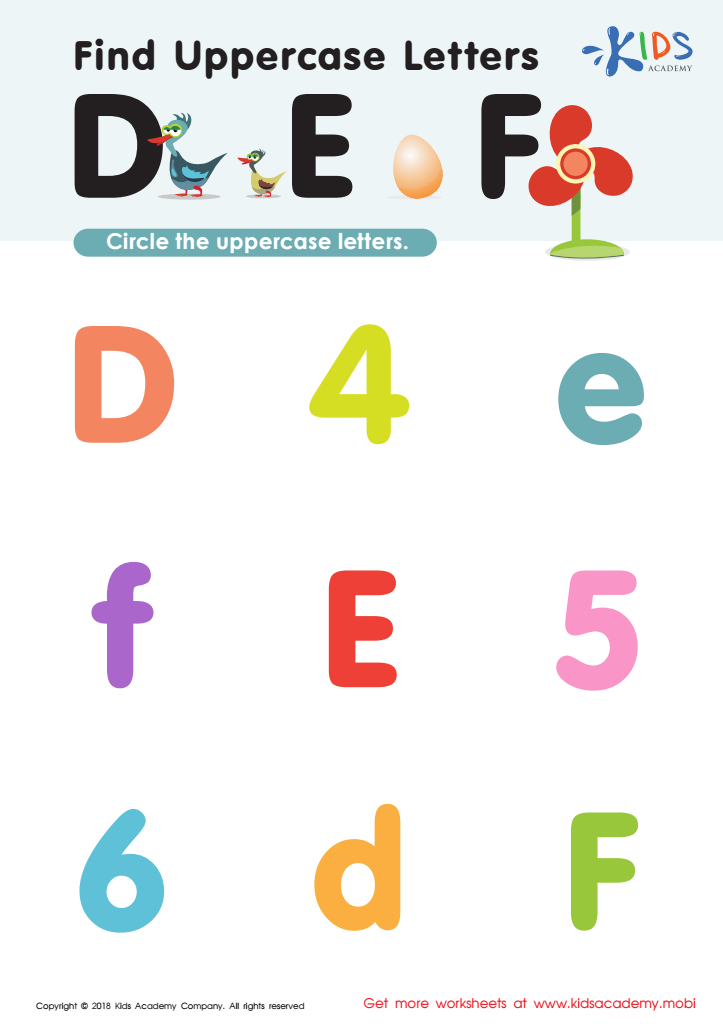

Find Uppercase Letters D, E, and F Worksheet
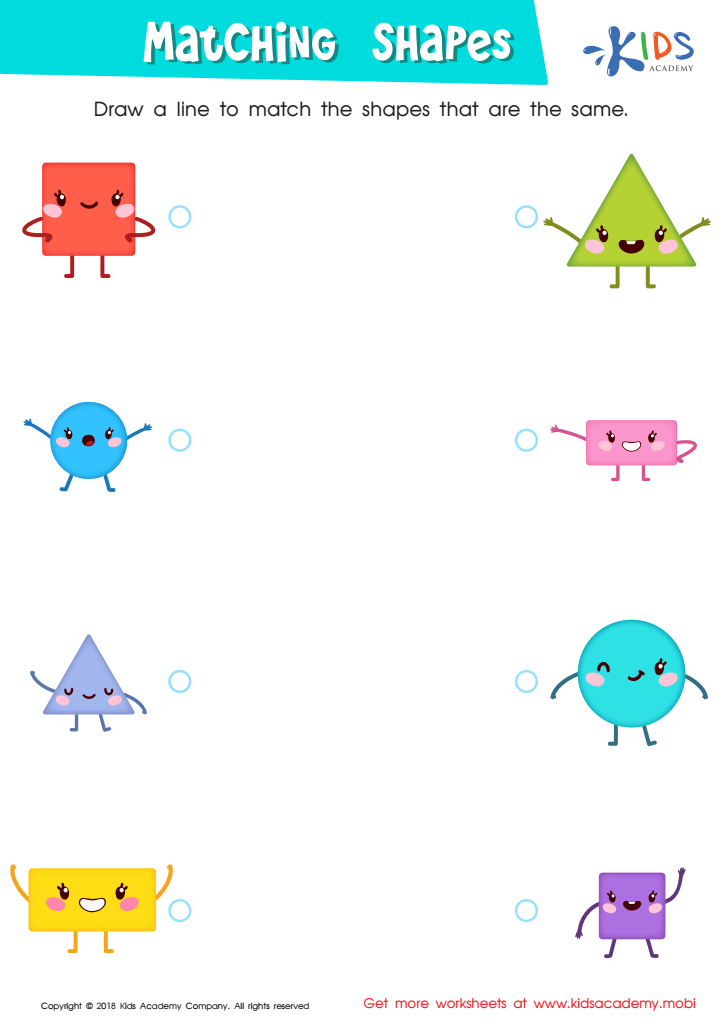

Matching Shapes Worksheet
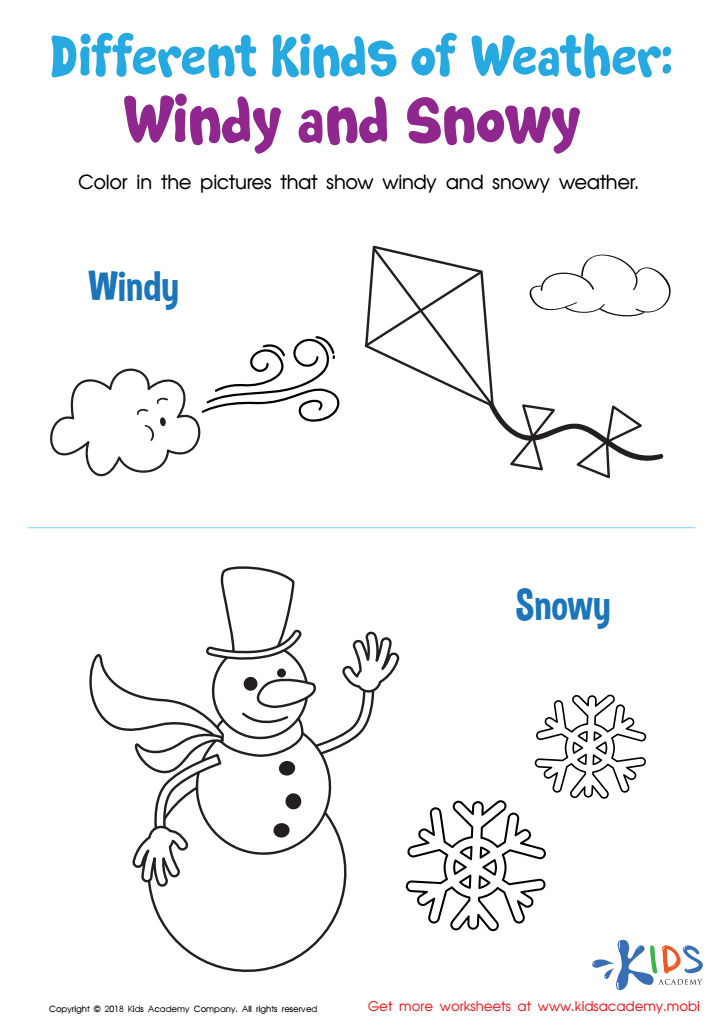

Different Kinds of Weather: Windy and Snowy Worksheet
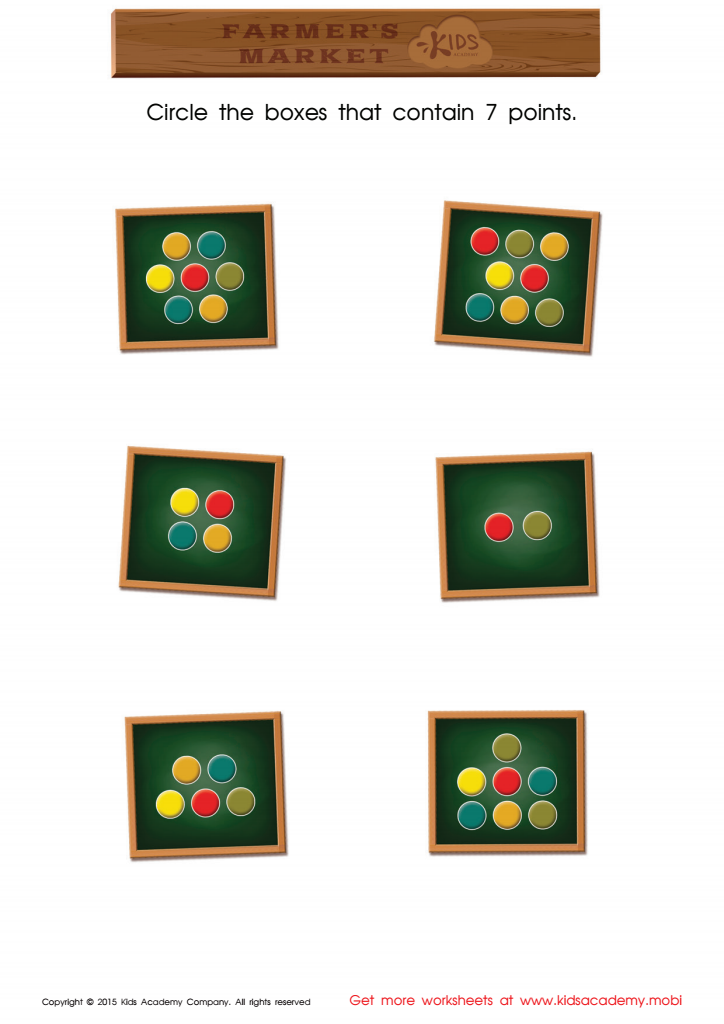

Count and Match Points 7 Math Worksheet
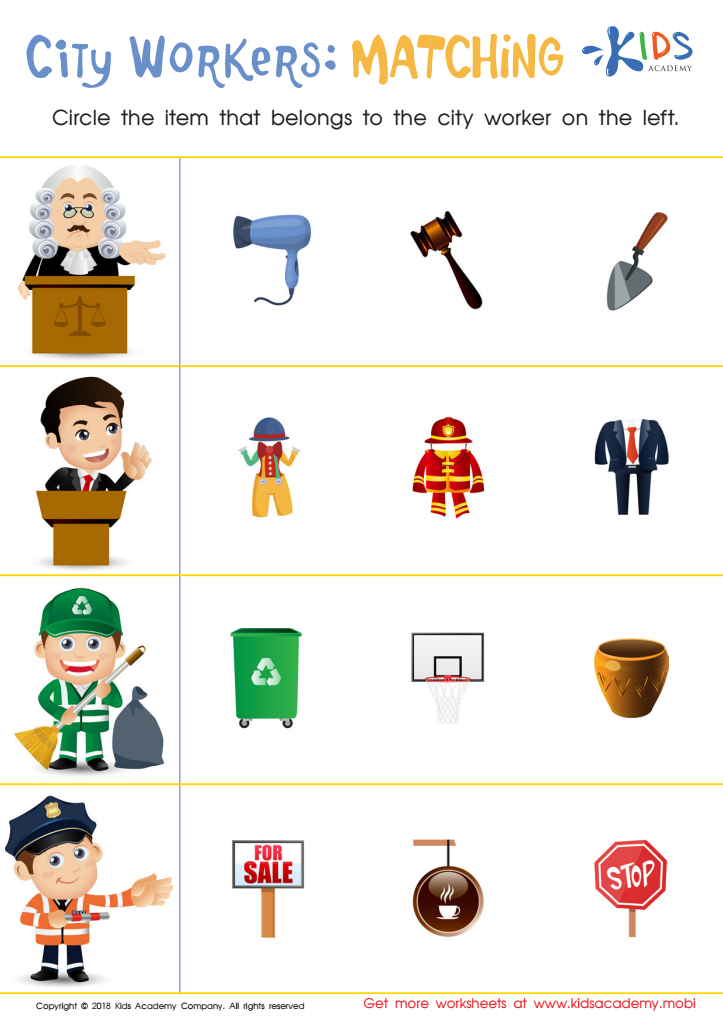

City Workers: Matching Worksheet
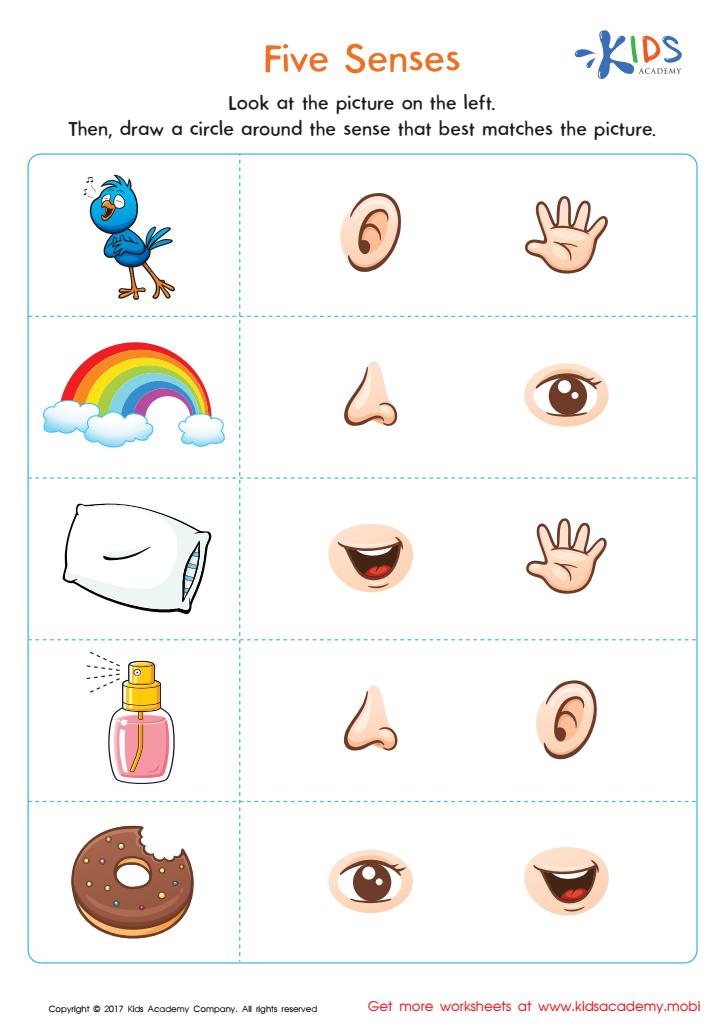

Five Senses Printable
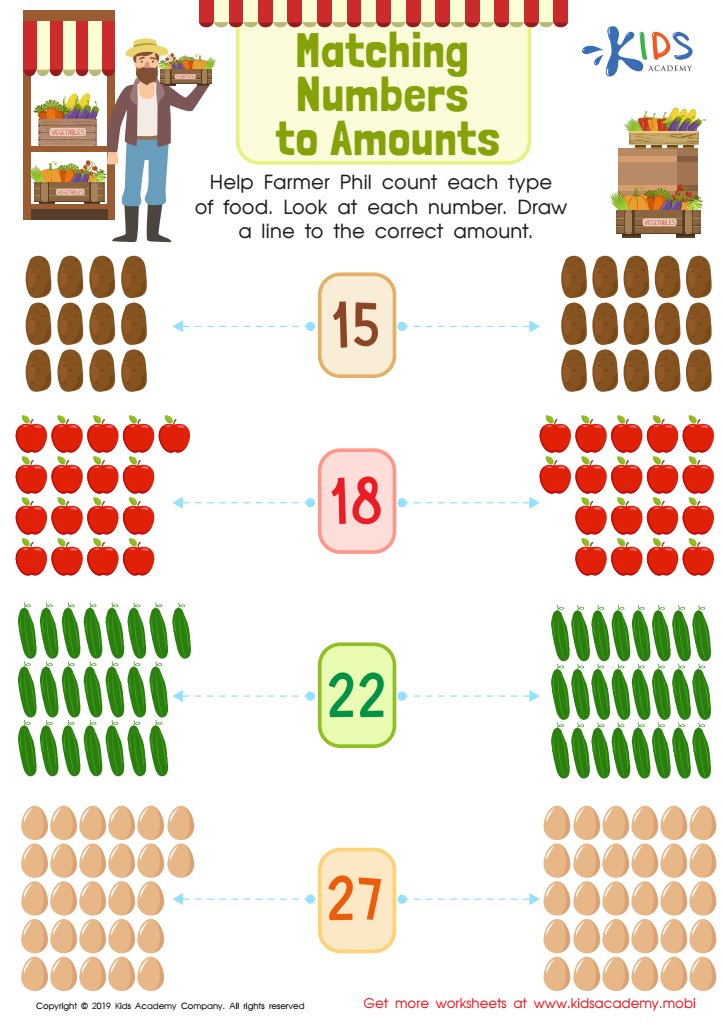

Matching Numbers to Amounts Worksheet
Parents and teachers should care about matching skills for children ages 3-4, as these skills are foundational for early cognitive development and learning. Matching involves recognizing similarities or differences between objects, which enhances critical thinking and problem-solving abilities. At this crucial developmental stage, children are naturally inclined to explore their environments, and matching activities promote engagement in this exploration.
When children practice matching skills, they develop visual discrimination, understanding of shapes, colors, and patterns. These skills support later academic concepts such as classifying and sorting, which are essential in math and science learning. Additionally, engaging in matching games can cultivate socio-emotional skills, as children often collaborate and celebrate successes together.
Furthermore, matching activities can foster communication skills. As children articulate their thoughts and reasoning while pairing items, they improve their language proficiency and vocabulary. This stage is also an opportunity for parents and teachers to bond with children through playful interaction, further enhancing their relationships.
Ultimately, promoting matching skills in early childhood sets the stage for a lifetime of learning by building a foundation in critical thinking, communication, and emotional growth. Engaging in these simple yet significant activities can make a meaningful difference in a child's development.

 Assign to My Students
Assign to My Students

